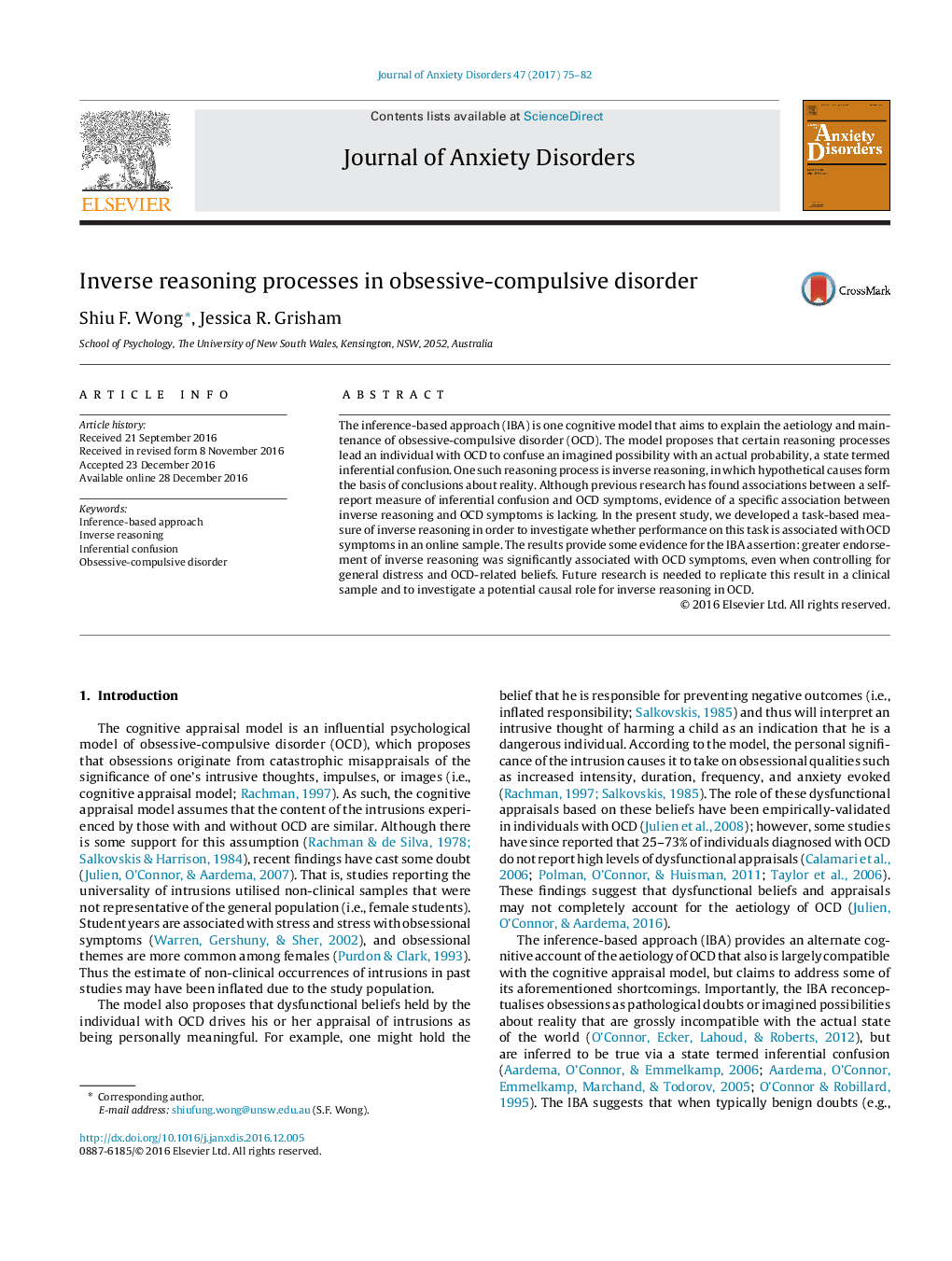| Article ID | Journal | Published Year | Pages | File Type |
|---|---|---|---|---|
| 5038872 | Journal of Anxiety Disorders | 2017 | 8 Pages |
â¢This study tested the central tenet of the inference-based model of OCD.â¢We developed a novel task-based measure of inverse reasoning.â¢Inverse reasoning on our task was positively associated with OCD symptoms.â¢This association was maintained when controlling for distress and OCD beliefs.â¢Findings support a specific relationship between inverse reasoning and OCD.
The inference-based approach (IBA) is one cognitive model that aims to explain the aetiology and maintenance of obsessive-compulsive disorder (OCD). The model proposes that certain reasoning processes lead an individual with OCD to confuse an imagined possibility with an actual probability, a state termed inferential confusion. One such reasoning process is inverse reasoning, in which hypothetical causes form the basis of conclusions about reality. Although previous research has found associations between a self-report measure of inferential confusion and OCD symptoms, evidence of a specific association between inverse reasoning and OCD symptoms is lacking. In the present study, we developed a task-based measure of inverse reasoning in order to investigate whether performance on this task is associated with OCD symptoms in an online sample. The results provide some evidence for the IBA assertion: greater endorsement of inverse reasoning was significantly associated with OCD symptoms, even when controlling for general distress and OCD-related beliefs. Future research is needed to replicate this result in a clinical sample and to investigate a potential causal role for inverse reasoning in OCD.
